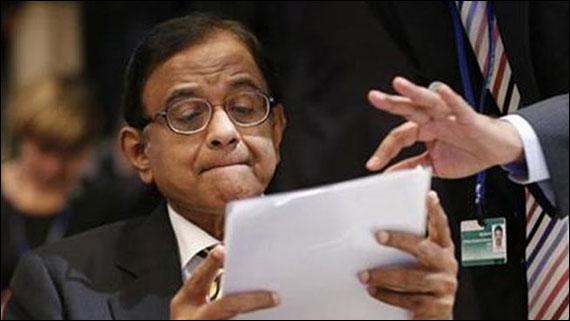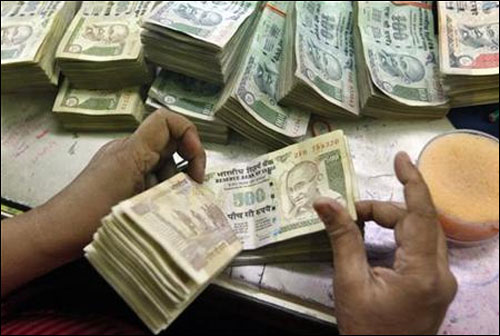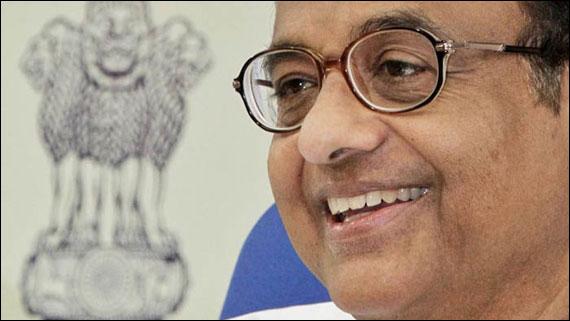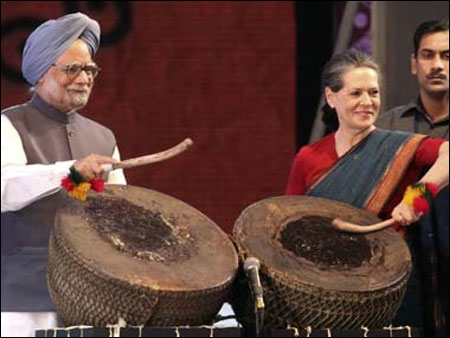 | « Back to article | Print this article |
The politics of a super-rich tax
Mr Chidambaram is known for his ability to think up new taxes to collect more revenue, and a tax for the super-rich could be one of those ideas he might introduce in the coming Budget, writes A K Bhattacharya.
The Union Budget season has begun. North Block, headquarters of the finance ministry, is busy with pre-Budget meetings with stakeholders. The most significant of them so far was the one with the economists.
There are conflicting versions of whether all or some economists were in favour of a higher tax on the super-rich. Even if all the economists opposed the idea or some of them favoured it, one thing became clear from the finance ministry note issued at the end of the meeting: raising taxes on individuals in the higher income brackets (say above Rs 10 lakh or Rs 20 lakh per annum, depending on your perspective!) is an idea that the finance ministry may indeed be toying with.
And that also says a lot about the likely direction of the Budget that Finance Minister P Chidambaram will present later next month.
Click on NEXT for more...
The politics of a super-rich tax
A few important factors should be kept in mind. In 2008-09, the year when Mr Chidambaram presented his last Budget for the government, direct tax revenues accounted for almost about six per cent of India's gross domestic product.
That represented a steady rise since the reforms began in 1991-92, when direct taxes accounted for only about 2.3 per cent of GDP.
The problem that the finance minister now faces is that the share of direct tax revenues in GDP has been declining since his last Budget and, in 2011-12, had come down close to 5.6 per cent.
So it is logical that he would strive for reversing that trend in next year's Budget.
After all, in his previous stint as finance minister, he raised this from four per cent to six per cent of GDP in a span of just four years.
He would, therefore, look for every opportunity to see how direct tax revenues could be bumped up through better administration or through some new taxes or even surcharges.
Click on NEXT for more...
The politics of a super-rich tax
Indirect tax revenues too have seen a decline in the last few years, with their share in GDP going down from 5.11 per cent in 2008-09 to a little less than 4.5 per cent last year.
But there is little that Mr Chidambaram can do to reverse that trend. Industry is hardly in a position to withstand any rise in the incidence of indirect taxes.
Indeed, industry associations have asked for a reduction in the basic excise duty and service tax rates to levels that prevailed two years ago.
No political headway has been made on introducing the goods and services tax either, which could have resulted in some revenue buoyancy.
Click on NEXT for more...
The politics of a super-rich tax
Feedback from the revenue department in the finance ministry may also be pushing the finance minister to focus more on direct taxes.
While direct tax collections so far during the current year have been satisfactory and are likely to achieve the Budget target, a shortfall in indirect tax revenues looks imminent.
Thus, the indirect tax collecting agencies have begun sending circulars that will force industry to pay up taxes even when they are disputed, so that the total shortfall in tax revenues is reduced when the revised Budget numbers are presented.
Meanwhile, the finance minister has chosen to focus on new direct tax initiatives to mop up some more revenues for the next year as well.
Click on NEXT for more...
The politics of a super-rich tax
Remember that Mr Chidambaram is known for his many novel tax initiatives and most of them are in the domain of direct taxes.
The most famous of those initiatives was introduced way back in 1997, when he forced zero-tax companies to pay a minimum alternate tax.
That tax has stood the test of time and all successive finance ministers have relied on it to garner revenues.
In his second stint as finance minister, Mr Chidambaram introduced the fringe benefit tax, the cash transaction tax and the securities transaction tax.
The first two had to be modified and later withdrawn, but the securities transaction tax has come to stay.
The point to be noted is that Mr Chidambaram is known for his ability to think up new taxes to collect more revenue, and a tax or surcharge for the super-rich could be one of those new ideas he might introduce in the coming Budget.
Click on NEXT for more...
The politics of a super-rich tax
Will this, then, run contrary to the widely held view that the forthcoming Budget would offer many incentives and concessions to woo voters?
After all, this will be the last full Budget for the United Progressive Alliance government before elections are due to be held in 2014.
That is true, but a super-rich tax may not necessarily turn voters against Mr Chidambaram's party.
On the contrary, a surcharge on income tax for those earning above, say, Rs 20 lakh (Rs 2 million) or more could help bolster the Congress' aam-aadmi image at the coming elections.
And if the additional revenue from a tax on the super-rich can be shown to be used for financing populist poverty alleviation schemes, the Budget might well take credit for killing two birds with one stone.
Either way, therefore, some taxes on sections that do not constitute the Congress vote bank look very likely. Politically, such a strategy may even work to the Congress' advantage.






